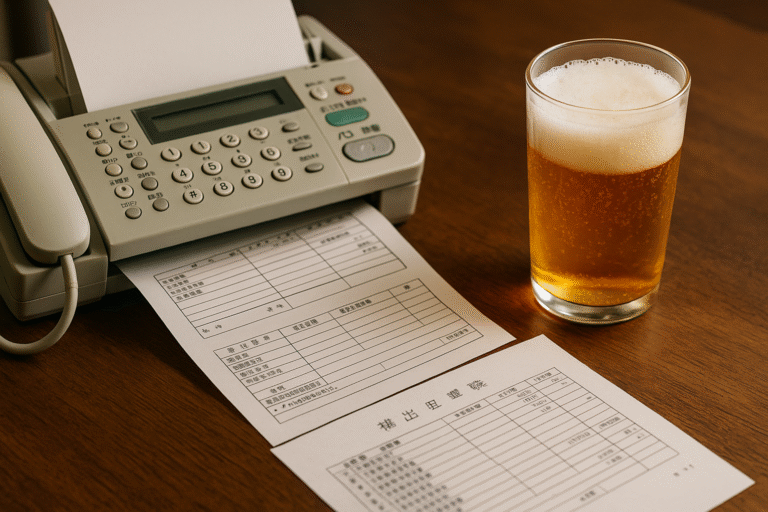News
Japan’s ruling Liberal Democratic Party (LDP) has elected Sanae Takaichi as its new leader following an internal party election — a move that could make her Japan’s first female prime minister.
In her first press conference after the victory, Takaichi delivered a strong statement reflecting her political philosophy:
“I will abandon the concept of work-life balance and devote myself fully to work.”
She emphasized that rebuilding both the nation and the party would require an “all-hands-on-deck” commitment from every member.
Source: AP News
Background
Japan’s Long-Hours Culture and the Struggle for Reform
Since the 1980s, the word “karoshi” (death from overwork) has become internationally recognized as a uniquely Japanese social problem.
In response to rising cases of overwork-related illness and suicide, both the government and corporations have promoted initiatives such as “Work Style Reform” and “Work-Life Balance.”
Yet, in practice, the deeply rooted notion that “working long hours equals dedication” remains pervasive — particularly among managers who believe that “leading by example” means staying at the office longer than their subordinates. This mindset continues to hinder meaningful reform.
What Takaichi Really Meant — and Why It Was Misunderstood
Takaichi’s remark was, in context, a message directed at fellow LDP lawmakers, not the general public.
With the party having lost seats and momentum, she called for each lawmaker to redouble their efforts — symbolically declaring that she herself would “sacrifice work-life balance” to rebuild both the party and the nation.
In other words, it was a call for political commitment, not a demand that ordinary citizens work longer hours.
However, in Japan — where the term “overwork” is tied to tragic memories of the past — such a statement easily triggers public unease.
Internationally, it has been interpreted through the lens of Japan’s karoshi legacy, prompting both criticism and irony online.
The Paradox of Modern Work: Too Much or Too Little
Interestingly, the opposite problem is also emerging in Japan today.
As workplace automation and efficiency improve, some high-performing employees find themselves finishing tasks quickly — then feeling “too idle to stay motivated,” prompting them to seek new challenges elsewhere.
Japan thus finds itself caught between “overwork” and “underwork”, struggling to redefine what a healthy, meaningful work culture should look like.
For employers, work-life balance has become a strategic tool to maintain productivity and attract talent, while for employees, it is now a minimum safeguard for mental and physical well-being.
In this tension, Takaichi’s statement has reignited a national debate over what “work” should mean in modern Japan.
Overseas Reactions
Below are selected comments from Reddit discussions reacting to Takaichi’s remark:
“Dude, we need to push back and bring back the 7-hour, 4-day work week.
This lady’s gonna turn everyone into mindless drones again.”
“End Monday mornings. Start the week at 1 p.m. Monday.”
“Go further: PM-only working hours for everyone! Japan — the world’s first ‘PM-only nation,’ led by our glorious PM.”
“If the prime minister’s working that hard, you just know bosses will start saying,
‘Hey, if she can do it, why can’t you?’”
“She’s clearly talking about herself and her party members, not everyone else.”
“Still, the CEOs are already taking notes…”
“Death by paperwork — that’s what we call it here.
I worked two days, and spent the other three just taking screenshots and typing reports in Excel.”
“My father-in-law works 70 hours a week and still does manual Excel calculations.
When I showed him how to use formulas, he was blown away.
That says it all.”
“Why do Japanese people keep voting for conservatives? The country’s stagnant, yet they never try something new.”
“The older generation keeps forcing their ways onto the young and calling them lazy.
They think it’s the younger ones’ duty to support them.”
“In today’s job market, companies compete by offering better benefits, shorter hours, and even 4-day weeks.
Politicians can say ‘work harder’ all they want — businesses won’t listen.”
Analysis: Political Message vs. Workplace Reality
Takaichi’s declaration was not aimed at Japan’s workforce at large, but at her fellow politicians.
Her intent — to convey resolve and urgency — nonetheless collided with the country’s complicated relationship with work and productivity.
Japan remains a nation where “being busy” is equated with “being good.”
While reforms promoting efficiency and flexibility are underway, progress is uneven across generations and industries.
At the same time, the rise of “bored high performers” — employees who complete their tasks too quickly to stay engaged — highlights a deeper issue:
the need to rethink work not in terms of hours, but purpose.
Lessons from Europe’s Hybrid Work Shift
Across Europe, the pandemic triggered a wave of remote work that has since stabilized into hybrid models — blending office and home-based work.
Full-time remote setups, once hailed as the future, have declined as companies rediscovered the value of in-person collaboration.
Yet the emphasis remains on flexibility, not surveillance.
The conversation has shifted from “reducing hours” to “choosing how to work.”
Conclusion: What Takaichi’s Remark Reveals About Japan’s Work Culture
Takaichi’s vow to “abandon work-life balance” was, in essence, a statement of personal and political resolve.
But in a nation still haunted by its overwork legacy, such words inevitably reopen old wounds.
Japan today faces a dual challenge — people who work too much, and those who struggle to find meaning when they don’t work enough.
The central question is no longer “How long should we work?” but “How should we work — and why?”
Like Europe, Japan now stands at a crossroads: whether to cling to its traditional culture of endurance or to embrace flexibility and purpose-driven work.
Takaichi’s comment, though controversial, has once again forced Japan — and the world — to confront that choice.


